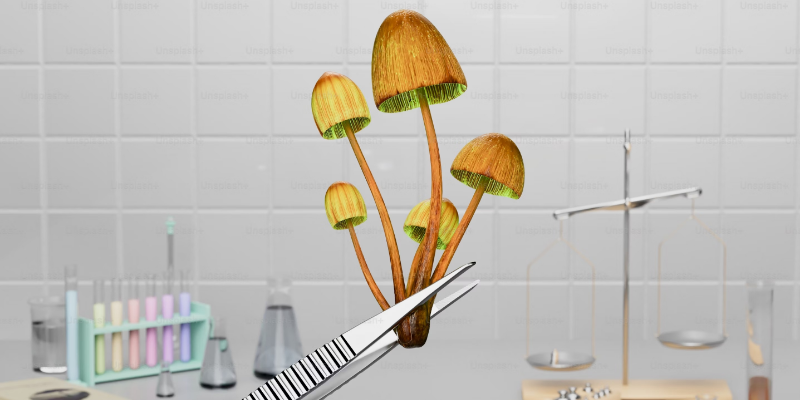There is a growing body of research on psilocybin containing mushrooms (magic mushrooms) combined with psychotherapy in the palliative care population. These studies suggest positive effects on end-of-life related anxiety, treatment related depression, somatic complaints, and
existential distress with a favorable adverse event profile. Consequently, providers caring for patients with serious illness may receive inquiries regarding access to such therapies. This blog post reviews the legal structure surrounding the use of psilocybin for palliative care.
Both Oregon (in 2024) and Colorado (upcoming in 2025) have established a framework of state distributed psilocybin with licensed growers, testing laboratories, facilitators, and consumption centers. No specific indication is required for patients to utilize this system, although high costs, need to travel to approved locations, and logistics provide barriers for some interested
individuals. The statutes establishing these programs make it clear that psilocybin consumption via the program is not considered the practice of medicine and is separate from existing medical regulation and licensure. Additionally, any physician or other licensed provider seeking to work in the state distribution framework must “take off their doctor hat” during that period
and follow the separate licensing scheme for psychedelic use.
Beginning in 2023, the Colorado statute also allows for any service provider, such as a massage therapist, yoga instructor, or death doula to gift psilocybin containing mushrooms as an “add-on” to existing services. There is no required laboratory testing to evaluate contamination or potency of these gifted mushrooms, and no formal guidelines exist for administration outside
of the state distributed program. Furthermore, under state law, patients may grow their own psilocybin containing mushrooms or be gifted (but not sold) mushrooms from a Colorado grower.
However, it is important to emphasize that psilocybin containing mushrooms are classified as Schedule I controlled substances with no accepted medical use within the United States under federal law. Consequently, outside of a research study with a DEA waiver, there is no federally legal pathway for a medical provider to provide “psychedelic” treatment for a patient. Although
complying with state law, providers in Oregon and Colorado may encounter legal prosecution, loss of DEA license, and termination of privileges at healthcare facilities if engaging in psychedelic assisted therapy with their patients. Of note, both 41 states and the federal government have passed “Right to Try” legislation allowing terminally ill patients access to non-FDA approved therapies. Per the FDA (https://www.fda.gov/patients/learn-about-expanded-access-and-other-treatment-
options/right-try), “a patient who is eligible for Right to Try is a patient who has:
- Been diagnosed with a life-threatening disease or condition
- Exhausted approved treatment options and is unable to participate in a clinical trial involving the eligible investigational drug (this must be certified by a physician who is in good standing with their licensing organization or board and who will not be compensated directly by the manufacturer for certifying)
- Provided, or their legally authorized representative has provided, written informed consent regarding the eligible investigational drug to the treating physician
An eligible investigational drug is an investigational drug:
- For which a Phase 1 clinical trial has been completed
- That has not been approved or licensed by the FDA for any use.
- For which an application has been filed with the FDA or is under investigation in a clinical trial that is intended to form the primary basis of a claim of effectiveness in support of FDA approval and is the subject of an active investigational new drug application submitted to the FDA.
- Whose active development or production is ongoing, and that has not been discontinued by the manufacturer or placed on clinical hold by the FDA.
Psilocybin meets criteria as an eligible investigational drug per FDA regulations. Nevertheless, the DEA has not offered an acceptable pathway for a treating provider to provide their patients with the drug. Currently, a legal appeal from an oncologist in Washington state is pending before the 9th circuit (https://sps.columbia.edu/events/psilocybin-vs-dea-law-ethics-society-
drugs; https://www.youtube.com/watch?v=yFi3GEewFpg) in an attempt to force the DEA to provide an exception within the context of Right to Try legislation.
To summarize, outside of an approved research protocol with a DEA waiver, there is no current federally legal pathway for licensed medical providers to provide a patient with psilocybin containing mushrooms. However, in both Oregon and Colorado, there are state-approved pathways for patients to access such products. Consequently, providers treating patients with serious illness may receive inquiries regarding potential risks and benefits even if such therapies occur outside of a medical framework.
Want to know more about our Palliative Care Education programs? Click below:
Interprofessional Palliative Care Certificate
Community Hospice and Palliative Medicine Fellowship



